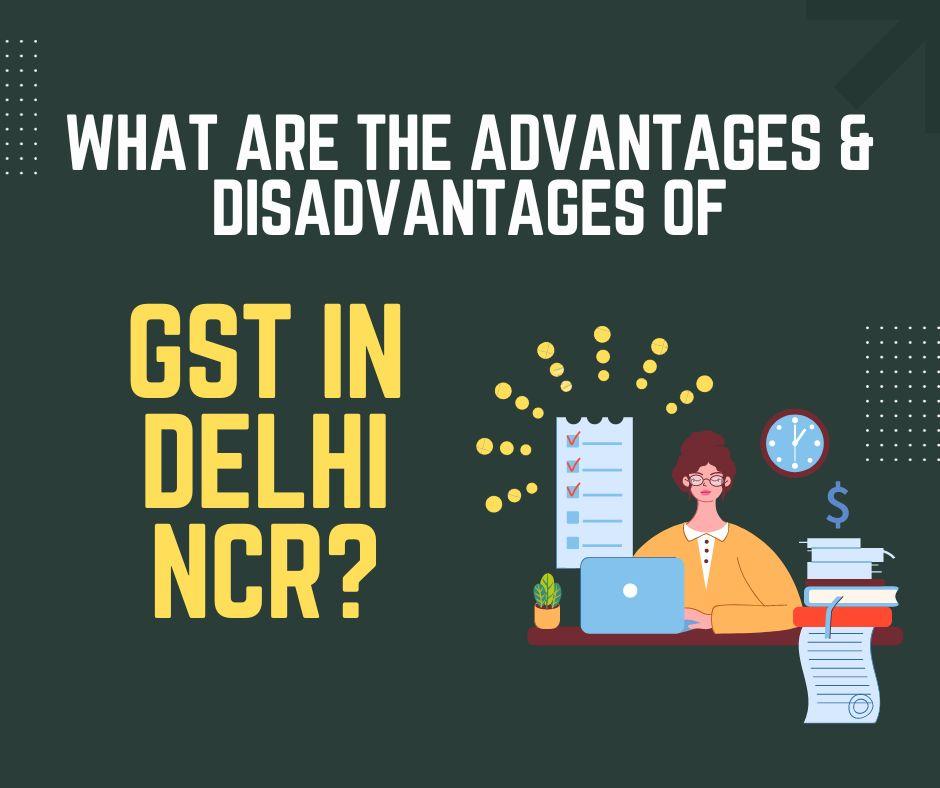Goods and Services Tax (GST) was introduced in India in 2017 as a culmination of several indirect taxes. GST is levied by the central government and state governments on the supply of goods and services. Delhi NCR (National Capital Region) is home to multiple businesses, both small and large. The implementation of GST has had a mixed impact on businesses operating in this region. Here are some of the advantages and disadvantages of GST in Delhi NCR.
Advantages of GST
1. Simplification of the taxation system: GST replaces several indirect taxes that were levied by the central and state governments. This has led to the simplification of the taxation system and ease of doing business in Delhi NCR.
2. Reduction in Tax Burden: With the introduction of GST, several businesses have reported a reduction in their tax burden. This is because GST is levied only on the value addition at each stage of the supply chain.
3. Increased Transparency: GST has brought in greater transparency in the taxation system. GST returns filed by businesses are linked with the returns filed by their suppliers, which has resulted in a clearer picture of the entire supply chain.
4. Encouragement to Compliance: GST has made it mandatory for businesses to register and file their returns online. This has reduced the scope for tax evasion and encouraged compliance among businesses in Delhi NCR.
1. Initial Transition Costs: The implementation of GST has resulted in initial transition costs for businesses. Revising invoicing procedures, retraining employees, and software changing are some of the initial transition costs that businesses have had to bear.
2. Multiple GST Rates: GST has multiple tax rates depending on the type of goods or services. This has led to confusion among businesses, especially those involved in the sale of multiple types of goods or services.
3. Effect on Small and Medium Enterprises (SMEs): SMEs have been adversely affected by the implementation of GST. These businesses have faced challenges in complying with the new tax regime, resulting in a decline in their profitability.
4. Increase in Prices: With the implementation of GST, the tax rate on some goods or services has increased. This has led to inflation, resulting in higher prices for customers.
Conclusion
GST has had both positive and negative effects on businesses in Delhi NCR. While the simplification of the taxation system and reduction in tax burden are significant advantages, the initial transition costs and effect on the SMEs have been some of the major disadvantages. The government needs to work towards addressing these issues and ensuring a smoother implementation of GST in the region.
